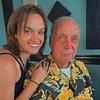Take a photo of a barcode or cover

ehatton07 's review for:
Dead Poets Society
by N.H. Kleinbaum
I went into this knowing I’d be biased, Dead Poets Society has been one of my favorite films for years. But the novelization doesn’t just retell the story, it deepens it. N.H. Kleinbaum gives space to the boys’ inner worlds in a way the movie can only hint at, making their journeys feel even more intimate and devastating.
Neil Perry is as radiant on the page as he is on screen. His hunger for freedom, for art, for autonomy, feels even more urgent. Watching him breathe on stage, only to be silenced off of it - it wrecks me every time. Todd Anderson’s arc is one of the most beautiful I’ve read: a quiet boy learning to take up space, to find voice through grief and love and poetry. His final stand? Still one of the most moving scenes in any medium. And Charlie Dalton, often dismissed as comic relief, is a revelation here. He’s passionate, angry, deeply human in his defiance.
At its heart, this is a story about voice, identity, and the unbearable weight of expectations. It’s about how friendship, art, and resistance can save you or almost save you. The book explores these themes with clarity and tenderness, never overwriting or overexplaining, just letting the emotion rise naturally.
This isn’t just a story about a teacher who changes lives. It’s about boys who learn to change their own, and the cost of doing so in a world that punishes nonconformity. It’s quiet, raw, and unforgettable.
If you’ve ever felt like your dreams were too big or your voice too small, read this. Let it remind you to seize the day and write your verse.
Neil Perry is as radiant on the page as he is on screen. His hunger for freedom, for art, for autonomy, feels even more urgent. Watching him breathe on stage, only to be silenced off of it - it wrecks me every time. Todd Anderson’s arc is one of the most beautiful I’ve read: a quiet boy learning to take up space, to find voice through grief and love and poetry. His final stand? Still one of the most moving scenes in any medium. And Charlie Dalton, often dismissed as comic relief, is a revelation here. He’s passionate, angry, deeply human in his defiance.
At its heart, this is a story about voice, identity, and the unbearable weight of expectations. It’s about how friendship, art, and resistance can save you or almost save you. The book explores these themes with clarity and tenderness, never overwriting or overexplaining, just letting the emotion rise naturally.
This isn’t just a story about a teacher who changes lives. It’s about boys who learn to change their own, and the cost of doing so in a world that punishes nonconformity. It’s quiet, raw, and unforgettable.
If you’ve ever felt like your dreams were too big or your voice too small, read this. Let it remind you to seize the day and write your verse.